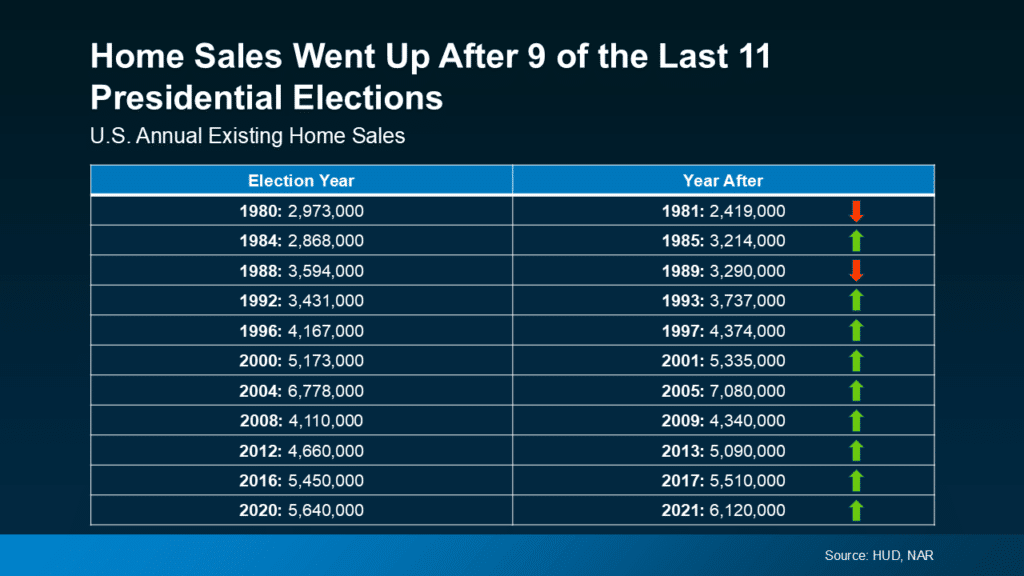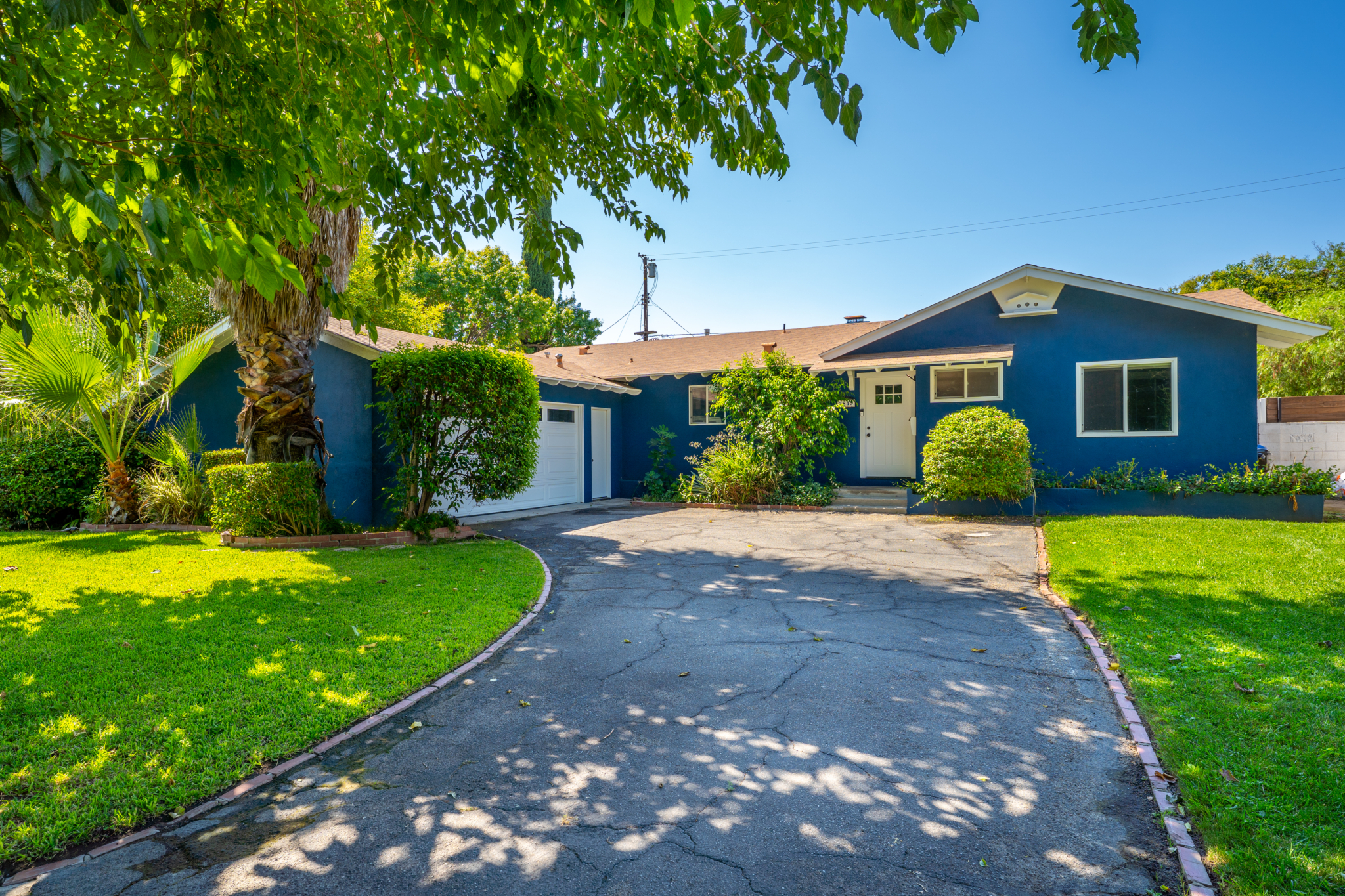It’s natural to feel curious and uncertain about what lies ahead with the upcoming Presidential election. This uncertainty can lead to concerns, especially if you’re thinking about buying or selling a home this year. You might wonder how the election could impact the housing market and whether it’s a smart time to make a move.
The good news, which might surprise you, is that historically, Presidential elections have only had a minor and short-lived effect on the housing market. However, it’s completely valid to have these questions, and it’s important to get clear answers so that you don’t feel the need to put your plans on hold.
Let’s explore decades of data that illustrate how home sales, prices, and mortgage rates have behaved during past Presidential election cycles, helping you make an informed decision about your homeownership goals.
Home Sales
In the month leading up to a Presidential election, from October to November, home sales usually experience a slight dip (see the graph below):
Some buyers may choose to hold off on making a decision until after the election. However, it’s key to understand that this dip is minor and temporary.
Historically, home sales quickly recover and continue to rise the following year. In fact, data from the Department of Housing and Urban Development (HUD) and the National Association of Realtors (NAR) shows that after 9 of the last 11 Presidential elections, home sales increased in the year following the election. This trend has remained consistent since the early 1990s (see chart below):

Home Prices
You might also be curious about home prices and whether they tend to drop during election years. The answer is: not usually. As residential appraiser and housing analyst Ryan Lundquist points out:
“An election year doesn’t change the price trend that’s already in place in the market.”
Home prices generally continue to rise over time, regardless of election cycles. Based on historical patterns, you can expect the current pricing trend in your local market to stay on course, unless there are significant market or economic changes.
Recent data from the National Association of Realtors (NAR) shows that after 7 of the last 8 Presidential elections, home prices increased the following year (see chart below):
The exception was from 2008 to 2009, which coincided with the peak of the housing market crash—a highly unusual time. However, today’s market is far more stable. While prices are leveling off on a national scale, they are not experiencing a widespread decline.
Mortgage Rates
Another factor likely on your mind is mortgage rates, as they directly affect your monthly payment if you’re financing a home. Historical data from Freddie Mac shows that during 8 of the last 11 Presidential election years, mortgage rates actually declined from July to November (see chart below):
This year, we’re already beginning to see that trend take shape. Most experts predict that mortgage rates will gradually decline throughout the remainder of 2024. If those predictions hold true – and current indicators suggest they will – this year could continue the pattern of falling rates. For those planning to buy a home in the coming months, this could be a positive development for your purchasing power.
What This Means for You
What’s the main takeaway? While Presidential elections can have some influence on the housing market, the overall effects are typically minor. For most buyers and sellers, elections don’t significantly alter their plans.
Bottom Line
While it’s normal to feel uncertain during an election year, history shows the housing market remains stable and resilient. This means you don’t need to put your plans on hold. If you need guidance navigating the market during this election cycle, let’s connect.










